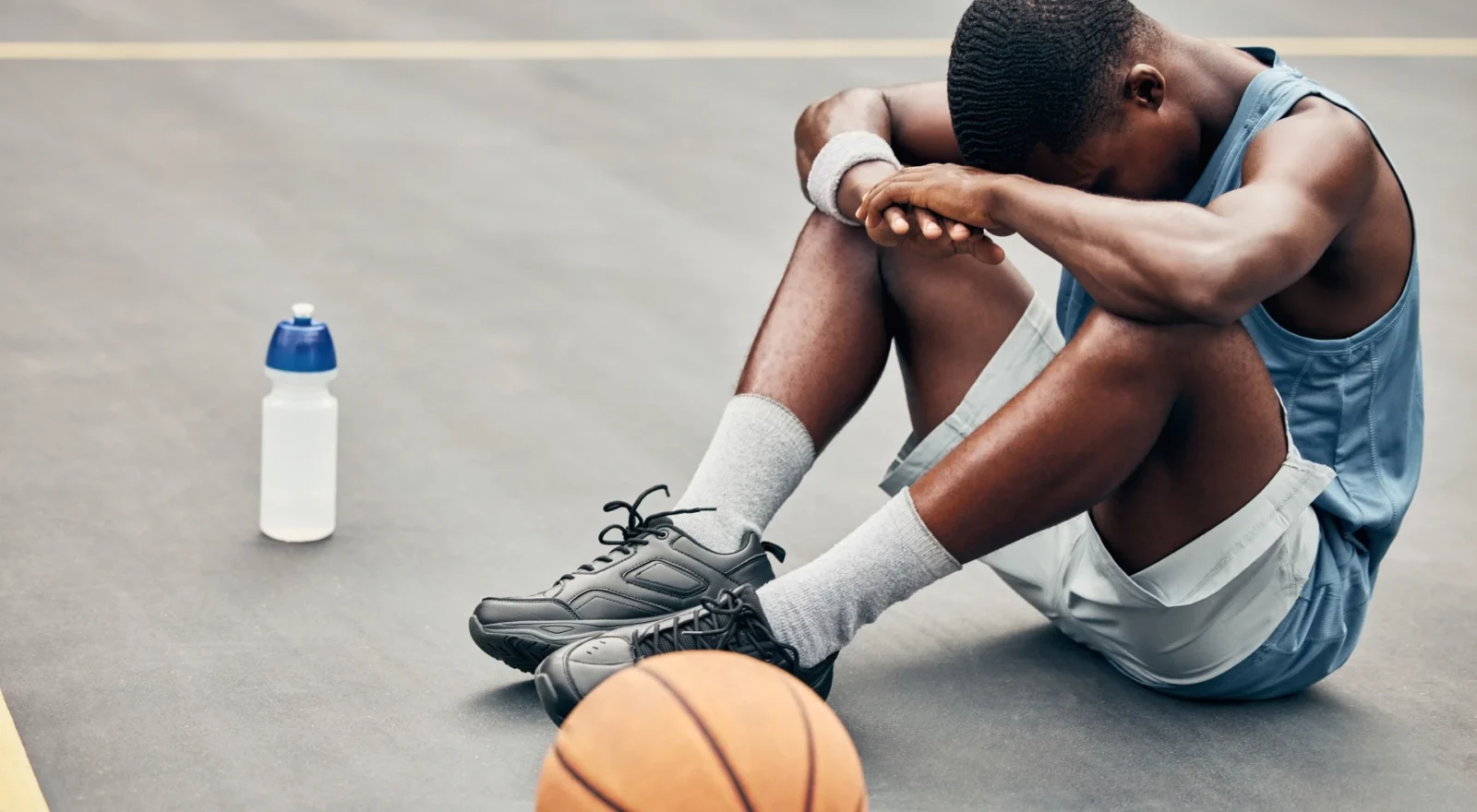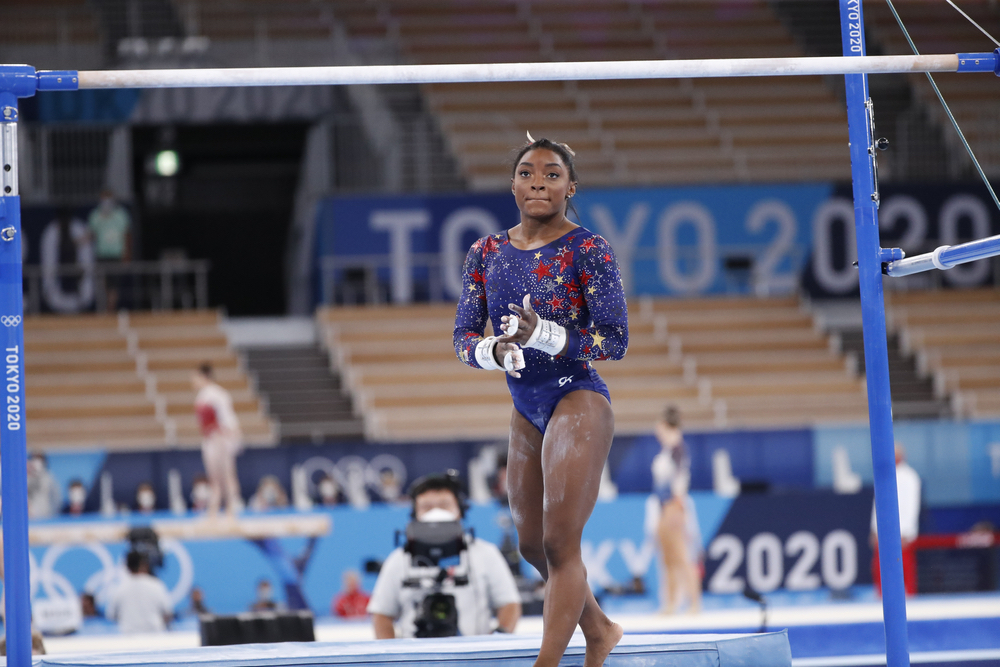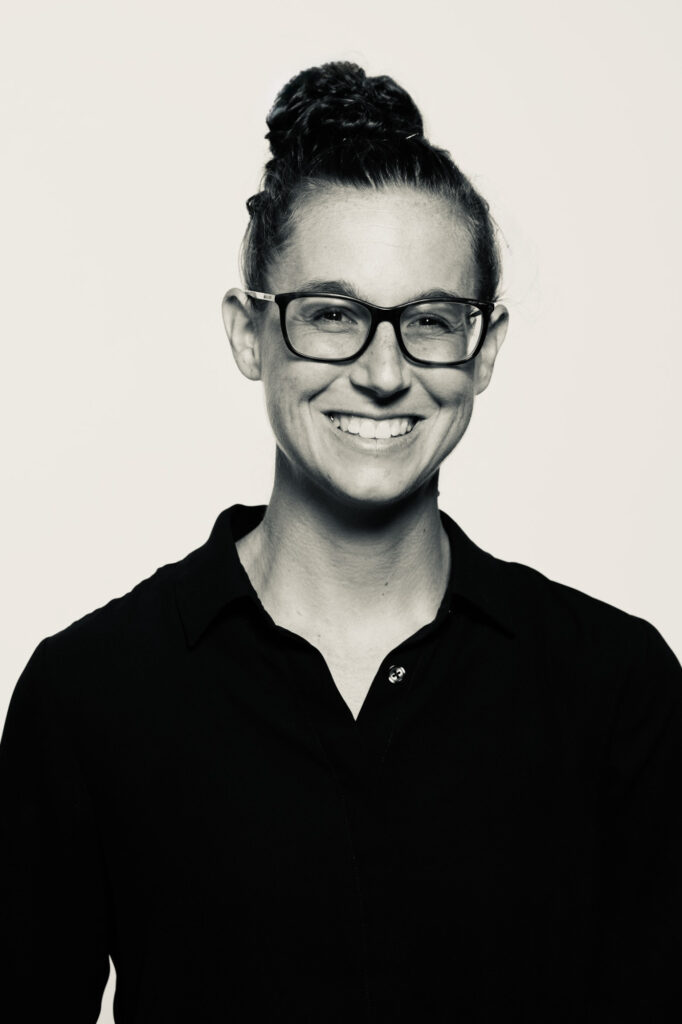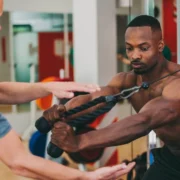Total Wellness Takes Center Stage in Sports

Dr. Elizabeth Nobis helps Penn student-athletes prioritize mental health, inspired by Simone Biles and Naomi Osaka
At the 2021 Tokyo Olympics, gold medal gymnast Simone Biles chose her health over her competition and took a 2-year break from her sport. In the same year, U.S. Open champion Naomi Osaka withdrew from the French Open, citing intense depression and anxiety. This year, the conversation on mental health care for athletes has never been louder, says Dr. Elizabeth Nobis, inaugural athletics psychologist at the University of Pennsylvania.
Nobis has worked to support the school’s nearly 1,000 varsity student athletes since the creation of her role in 2022. Nobis holds individual and group therapy on campus, working alongside coaches and supporting the students through every facet of their lives.
Whether they are suffering from panic attacks, an eating disorder, or require assistance for anxiety and depression, these athletes have a designated safe space to turn to: the office of Liz Nobis.
“With athletes, there’s a lot of emphasis on the performance, which can be connected to body image, weight, eating – any of those things once hyper-focused can become a concern,” Nobis told Athletech News. “And that can be true in any other high-pressure or high-performing environment.”
Something can be someone’s greatest strength until it’s overemphasized and then becomes the greatest weakness, Nobis says.
Professional Leadership
Celebrity athletes like Biles and Osaka have helped to open up the dialogue for those struggling with mental health issues and the tough decision to publicly discuss personal battles. Their transparency is as vital for household name athletes as it is to college students.
In April, the conversation on athlete mental health expanded to the platform of the Olympic Games themselves, showing just how important the topic is for athletes at every stage of their career.
Prior to this year’s games, the Paris Olympics Committee interviewed nine competitors, including Biles and Osaka, asking about their mental health prioritization for the upcoming events, a never-before-seen type of feature for the Games.
From U.S. rugby champion Ilona Maher to Paralympic track and field medalist Jaleen Roberts, the diverse group of athletes confidently and honestly shared their thoughts on mental health.
“It’s been enlightening just to try to break down the barriers of what people view athletes as,” Maher said during a press conference. “We put athletes on a pedestal and Olympians on pedestals as indestructible and really strong. But athletes are human, as you saw in the Tokyo Olympics with Simone Biles and the humanity that she showed us. Here’s the best gymnast in the world, who’s just so amazing at what she does, and she’s having bad days.”

How Fitness and Wellness Pros Can Help
According to a 2019 systematic review and meta-analysis by the British Journal of Sports Medicine, 34% of elite athletes experienced anxiety and depression while 19% suffered from alcohol misuse. Thanks to studies like this and voices of athletes like Biles and Osaka, the International Olympic Committee announced a Mental Health Action Plan in 2023 to further support their athletes.
“There are so many benefits of the generational conversation that have changed in athletics, as well as outside of athletics,” Nobis said. “It’s okay to seek help, it’s okay to not be okay. It’s okay to ask and not have to hold that inside.”
Nobis, who also oversees Penn’s Student Athlete Wellness Ambassadors group and works for the Sexual Trauma Treatment and Outreach Prevention committee, says that often her work with students involves working through the frustration and anxiety of training together.

“Often, my work is ‘Okay, we’re going to do those reps, but we’re also going to do those reps from the emotional standpoint and grow those emotional muscles,’” Nobis said.
For coaches, fitness experts and trainers working with athletes, Nobis says intentional listening, accountability and self-monitoring are the best ways to support an athlete’s mental health.
“If you’re a trainer, are you asking ‘How are you doing?’ because that’s the pleasantry, or ‘How are you really doing?’ Nobis said. “And do you have room for that answer? That often means tolerating our own distress around someone if they are taking a chance and sharing something that’s difficult.”
When someone feels comfortable enough to share something difficult, it can make others uncomfortable and feel the need to problem solve, Nobis explains.
“Most of us find it’s like, ‘Oh, we want to make it better,’” Nobis said. “And [we] tighten up, and that makes it almost want to go away. If we can respond with a posture of curiosity, of opening up, that’s where things are actually going to feel loose and we can feel some relief from that.”



